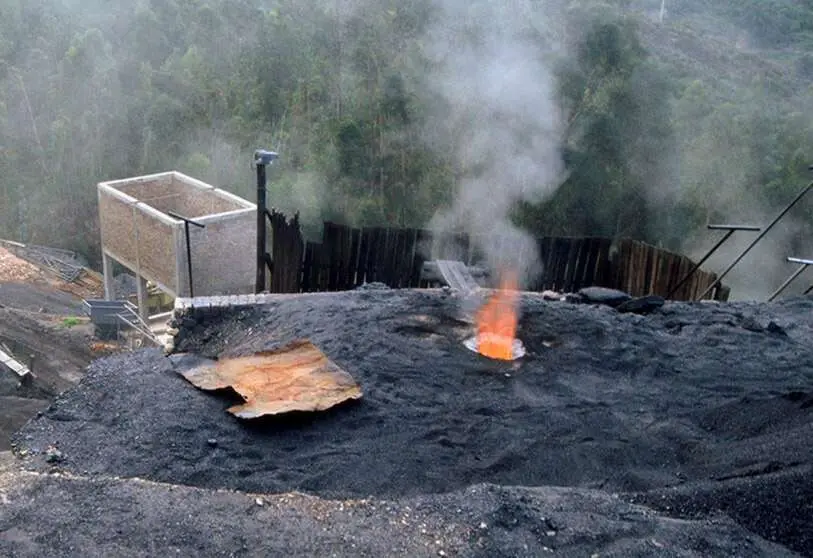Removing coal from the grid is the most important step towards reducing climate change

Speaking at the UK-sponsored Global Carbon Partnership Summit, the UN Secretary General explained that in the past year, in the midst of a pandemic, many public and private sector leaders have committed to achieving net zero emissions by mid-century.
This climate momentum "offers some hope", said António Guterres who, however, recalled that last Friday, the Secretariat of the United Nations Framework Convention on Climate Change published a report whose conclusions "were not good", as countries are far from meeting the Paris Agreement target of limiting global warming to below 2 degrees Celsius, and ideally to 1.5 degrees Celsius.
"We have a long way to go," said the UN official, but he stressed that we still have time to achieve it "if we take immediate action to phase out the dirtiest, most polluting and, yes, increasingly costly fossil fuels in our energy sectors".
In this regard, he stressed that phasing out coal from the electricity sector "is the most important step we must take in line with the 1.5 degree target".
He went on to explain that phasing out coal means that its use in electricity generation must fall 80% below 2010 levels by 2030.

For those nostalgic for this fossil fuel he had a message: "Once upon a time, coal brought cheap electricity to whole regions and vital jobs to communities. Those days are gone. More than half of the renewable capacity added in 2019 achieved lower energy costs than the cheapest new coal plants."
The benefits of eliminating dirty energy like this exceed environmental and extend to health, as fossil fuel-related air pollution causes 1 in 5 deaths globally each year.
And other benefits are purely economic. In virtually all markets, it is now cheaper to build new renewable energy capacity than new coal plants.
For example, the International Energy Agency has found that the cost of building new solar projects is cheaper than simply running existing coal plants in places like China and India.
For all these reasons, Guterres called "on all governments, private companies and local authorities" to take three steps:
- cancel all global coal projects in the pipeline and put an end to the deadly addiction to coal
- end international financing of coal plants and shift investment to renewable energy projects
- launch a global effort to finally organise a just transition.
To achieve the first step, Guterres urged all Organisation for Economic Cooperation and Development countries to commit to phasing out coal by 2030, and non-OECD countries to do so by 2040.
He also called on major coal emitters and users to announce their phase-out plans well ahead of this year's Climate Change Conference in Glasgow. His message was particularly aimed at the members of the G7, the world's seven most powerful economies, who he called on to take the initiative and commit to the step of cancelling all their coal projects at their summit in June.
For the second step of shifting investment to renewable energy projects, the Secretary-General called on the leaders of the major emitting economies to announce the end of their financial support for coal at the earliest opportunity this year.
He also had words for developing countries that are about to embrace the transition to renewable energy to provide universal energy access for their citizens and called on them to commit to that policy.

In addition, he addressed all multilateral and public banks, as well as investors in banks or pension funds, to shift their investments now to the new renewable energy economy.
The third step, to organise a just transition, "coal plant by coal plant if necessary", refers to the inevitable job losses that these measures will generate, but reminding that the transition to renewable energy will result in the net creation of millions of jobs by 2030.
All this must be done without losing sight of the fact that the impact at regional and local level will be varied.
"We have a collective and urgent responsibility to address the serious challenges that come with the speed and scale of the transition. The coal needs of communities must be recognised and concrete solutions must be provided at a very local level. That requires commitment, from governments to energy companies, from labour, from trade unions to investors, both private and public," Guterres explained.
Decent work
To that end, he made another call for all countries to adopt the International Labour Organisation's Guidelines as a minimum standard to ensure progress on decent work for everyone.
"The United Nations will fully support this just transition and efforts to ensure that thriving renewable energy communities emerge from this transformation," he said.
The UN official ended his address to the Global Coalition to Eliminate Coal Global Summit with a positive message showing his conviction that: "We can have renewable energy and blue skies. We can have decent, healthy and reliable jobs. We can have reliable renewable energy systems that ensure that all people have access to energy. We can move beyond coal and have economies that thrive on innovative businesses aligned with what the world demands: sustainable development and prosperity for people and the planet".








